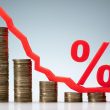In recent years, the political landscape in France has experienced significant shifts. The emergence Economy of the Rassemblement National (RN), led by Marine Le Pen, has been a focal point of these changes. A recent Financial Times (FT) poll suggests that the French populace increasingly trusts the RN, particularly concerning economic matters. This article delves into the implications of this trust, exploring the factors contributing to RN’s economic credibility, and presents a comparative analysis with other major political parties in France.
Historical Context of Rassemblement National

The Rassemblement National, formerly known as the National Front (Front National), was founded in 1972. Initially, the party was known for its far-right stances, focusing on issues like immigration and nationalism. However, under Marine Le Pen’s leadership since 2011, the RN has sought to rebrand itself. While maintaining its core values, the party has broadened its appeal by addressing economic concerns more prominently.
Economic Policies of RN
Job Creation and Unemployment
One of the key pillars of RN’s economic policy is job creation. The party advocates for policies aimed at reducing unemployment, particularly among the youth and in economically depressed regions. This includes proposals for vocational training programs and incentives for businesses to hire locally.
Protectionism and National Industry
The RN’s economic strategy also emphasizes protectionism. Le Pen has argued for measures to protect French industries from international competition, including tariffs on imports and subsidies for domestic companies. This approach aims to preserve jobs and boost local production.
Fiscal Policy and Taxation
Fiscal prudence is another aspect of RN’s economic agenda. The party proposes significant tax reforms, including reducing the tax burden on small and medium-sized enterprises (SMEs) and individuals. Additionally, RN advocates for cutting public spending to balance the budget, albeit with a focus on preserving essential services.
Comparative Analysis with Other Parties
La République En Marche (LREM)
President Emmanuel Macron’s party, La République En Marche (LREM), takes a different approach to the economy. LREM promotes a liberal economic policy, focusing on globalization, market deregulation, and innovation. While Macron’s policies have aimed to attract foreign investment and boost economic growth, they have faced criticism for favoring the wealthy and not addressing income inequality effectively.
Les Républicains (LR)
Les Républicains (LR), a center-right party, also prioritize economic growth but through conservative fiscal policies. They advocate for tax cuts, reducing public sector size, and labor market reforms. However, LR has struggled to present a coherent economic vision that differentiates itself significantly from LREM or addresses the populist sentiments that RN capitalizes on.
Parti Socialiste (PS)
The Socialist Party (PS) traditionally focuses on social justice and wealth redistribution. Their economic policies emphasize increasing public spending on social services, raising taxes on the wealthy, and enhancing labor protections. However, PS has seen a decline in support, partly due to the perception that their policies are outdated in addressing the modern economic challenges facing France.
Analysis of FT Poll Findings
The FT poll’s findings indicate a significant shift in public opinion towards RN regarding economic management. Several factors could explain this trend:
Economic Anxiety
France has faced economic stagnation and high unemployment rates for years. This has led to widespread economic anxiety, particularly among the working class and youth. RN’s protectionist policies and promises of job creation resonate with those who feel left behind by globalization and economic liberalization.
Nationalistic Appeal
RN’s emphasis on protecting French industries and reducing immigration appeals to nationalist sentiments. In times of economic uncertainty, this approach can seem like a safeguard against external economic pressures.
Disillusionment with Traditional Parties
The traditional parties, LREM, LR, and PS, have struggled to address the economic concerns of many French citizens effectively. Scandals, perceived Economy elitism, and failure to deliver on promises have led to disillusionment, making RN’s straightforward, albeit controversial, solutions more attractive.
Media and Communication Strategy
Marine Le Pen and RN have adeptly used media to communicate their economic policies. Le Pen’s rhetoric often focuses on relatable, everyday economic issues, making her message resonate more with the average voter compared to the often technical and abstract economic policies of other parties.
Comparative Table of Economic Policies
| Aspect | RN | LREM | LR | PS |
|---|---|---|---|---|
| Job Creation | Vocational training, local hiring | Innovation, tech industry growth | Labor market reforms | Public sector jobs |
| Protectionism | Tariffs, subsidies for local firms | Free trade agreements | Balanced approach, selective protectionism | Against broad protectionism |
| Taxation | Tax cuts for SMEs and individuals | Tax cuts for businesses, wealth tax removal | Tax cuts, reduce public sector size | Increase taxes on wealthy, progressive taxation |
| Public Spending | Reduce, preserve essential services | Increase for innovation and tech | Reduce, focus on efficiency | Increase for social services |
| Economic Growth Strategy | Protectionism, local industry | Globalization, deregulation | Conservative fiscal policies | Wealth redistribution, social justice |
Analysis Table of FT Poll Results
| Poll Aspect | RN (Le Pen) | LREM (Macron) | LR | PS |
|---|---|---|---|---|
| Trust in Managing Economy | High | Moderate | Low | Low |
| Job Creation Policies | Most Trusted | Trusted | Least Trusted | Least Trusted |
| Protectionist Measures | Most Supported | Least Supported | Moderately Supported | Least Supported |
| Taxation and Fiscal Policy | Highly Supported | Moderately Supported | Moderately Supported | Least Supported |
| Public Spending and Services | Supported | Highly Supported | Moderately Supported | Highly Supported |
| Overall Economic Credibility | High | Moderate | Low | Low |
Conclusion
The FT poll underscores a significant trend in Economy French politics: the increasing trust in Marine Le Pen’s Rassemblement National on economic matters. This shift reflects broader economic anxieties, disillusionment with traditional parties, and effective communication strategies by RN. As France continues to grapple with economic challenges, the role of RN in shaping the future economic policies of the country will be pivotal. Whether this trust translates into lasting political success for RN remains to be seen, but it undoubtedly marks a critical juncture in French political dynamics.












